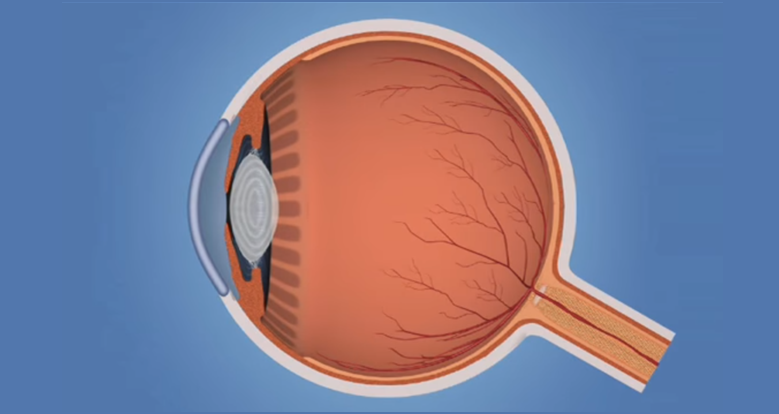¿What is Glaucoma?
Glaucoma is a disorder in which the pressure of the fluid inside the eye is abnormally high, higher than the eye can tolerate for a long time. Most ophthalmologists believe that when the pressure of the fluid inside the eye called intraocular pressure is higher than normal, the risk of damage related to that excessive pressure increases considerably.
What causes glaucoma?
It is due to an accumulation of the fluid called aqueous humor that circulates inside the eye, because it forms too much liquid or because its passage to the schemmus duct through which it normally leaves the eye is obstructed. As liquid continues to enter the eye, it adds to what is already in it, the intraocular pressure continues to increase.
Can glaucoma damage your eyesight?
If not treated yes. High intraocular pressure can compress the blood vessels that nourish the sensitive visual structures of the back of the eye. Due to the reduction in blood risk, visual nerve cells die, so vision decreases. As the disease progresses, it damages more nerve cells, and narrows the visual field. If left untreated, this process can lead to total blindness.
How can I know if I have glaucoma?
Generally the patient does not know. Glaucoma is insidious, in the vast majority of cases it develops slowly over months or years without causing any symptoms. The damage can progress so slowly that the patient does not realize the gradual loss of sight. It is generally getting worse and worse and can finally reach irreversible blindness.
Some patients do experience vague symptoms, which are important signs that a complete eye exam is necessary.
These symptoms may include the need to change lens graduation frequently, difficulty adjusting to darkness, loss of lateral vision and blurred vision. In rare cases, other symptoms may occur such as seeing halos or rainbows around the lights, severe headaches, or eye pain.
Who suffers from glaucoma?
The risk of glaucoma increases with age, glaucoma usually affects people over 35 years. In fact, according to the National Society for the Prevention of Blindness in the United States, one in every 50 Americans over 35 and three in every 100 over 65 suffer from glaucoma. A very rare form of glaucoma can occur in children. The risk of suffering from glaucoma is higher in diabetic people. Those with a family history of the disease should have their eyes examined regularly by an ophthalmologist.
Are there different types of glaucoma?
If there are several types. The most common are chronic acute secondary and congenital, which are described below:
Simple or chronic open angle glaucoma
It constitutes the majority of cases around 90%. It progresses slowly, often goes unnoticed for many months or years and causes a gradual deterioration of sight. Typically, this type of glaucoma responds well to the treatment that usually must continue throughout life to keep intraocular pressure controlled and thus prevent vision loss. In a few cases an operation is necessary for the intraocular fluid to circulate freely.
Acute or closed angle glaucoma
It suddenly causes a large increase in intraocular pressure. If left untreated, it can permanently damage your eyesight in no time. Medications are usually given to reduce the pressure and then an operation is done to correct the problem.
Unlike chronic open-angle glaucoma, acute glaucoma often produces noticeable symptoms such as severe eye pain, blurred vision, halos around the lights and vomiting.
Secondary glaucoma
This type of glaucoma is when due to another disease such as inflammation of the eye, tumors, operations or eye injuries, or advanced cataracts.
Congenital glaucoma
This type of glaucoma, which exists since birth, is rare. Enlargement of the child's eyes, tearing and exaggerated sensitivity to light are symptoms that indicate the need for an ophthalmologic examination.
How is glaucoma diagnosed?
Through a careful examination of the eyes by an ophthalmologist, which includes the measurement of intraocular pressure by a simple and painless procedure.
Can glaucoma be cured?
Although glaucoma cannot be cured, in most cases it can be well controlled with proper treatment.
Glaucoma is a chronic disease that lasts a lifetime and requires continuous observation and treatment to keep intraocular pressure controlled and thus prevent vision loss. The sooner the disorder is discovered and treated, the easier it will be to prevent vision impairment.
What kind of treatments are there?
The most common form of treatment consists of eye drops. Sometimes medications are also used in tablets and in some cases an operation may be necessary.
How often do eye drops have to be applied?
Typically eye drops have to be applied every day. Depending on the medication they prescribe, the dose may be only one drop a day or it may be necessary to put the drops several times a day. In some cases the doctor will prescribe more than one product of eye drops. Always follow your doctor's instructions.
What is the best way to use eye drops?
Because glaucoma eye drops should be administered at very precise doses, most products are presented in special containers. Your doctor will tell you how to properly use your medication.
Are there any simple rules I should follow?
1.- Apply the medication as directed by your doctor. Do not change the dose using more or less drops than those prescribed
2.- If you travel, be sure to bring enough medicine. Ask your doctor if you should take the prescription with me. Remember glaucoma is controlled by continuous use of medication
3.- Do not stop going to your doctor's appointments. Your glaucoma can only be well controlled if your ophthalmologist continuously monitors you.
4.- Inform your ophthalmologist of other medications you are using, especially those that are bought without a prescription. If you see another doctor, do not stop informing him that he is receiving treatment against glaucoma.
5.- Never use any medication or eye wash without your doctor's approval.
6.- Since glaucoma can be hereditary, recommend all adults in your family including cousins, uncles and aunts to have regular eye exams



